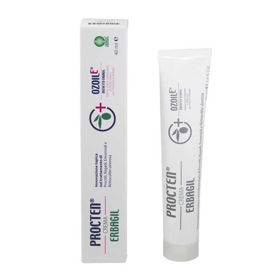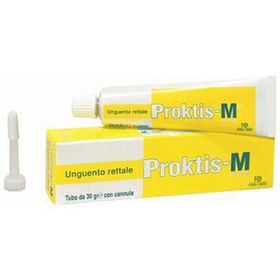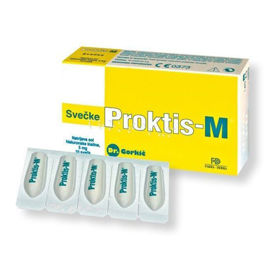Vprašanje stranke:
Zakaj nastane fisura? Vprašanje anonimne stranke
Odgovor farmacevta:
Analna fisura je razpoka v sluznici analnega kanala, ki je pogosto posledica več dejavnikov.
Prvenstveni vzrok za nastanek tovrstne fisure je ponavadi povezan z napetostjo in poškodbami sluznice med pretrdimi blatom ali zaprtjem. Ko blato postane trdo, je izločanje težavnejše, kar lahko privede do prekomernega napenjanja in posledično do poškodbe sluznice. To je še posebej pogosto pri ljudeh, ki imajo že sicer težave s prebavo, na primer pri sindromu razdražljivega črevesa ali pri tistih, ki uživajo premalo vlaknin v prehrani.
Poleg trdega blata je lahko vzrok tudi kronična driska, saj stalno mehko blato lahko draži in poškoduje občutljivo analno sluznico. Takšne situacije lahko še poslabšajo dejavniki, kot so nepravilna prehrana, stres ali določena zdravila, ki vplivajo na delovanje črevesja.
Ženske, ki so rodile, so prav tako bolj dovzetne za razvoj analnih fisur. Med porodom pride do znatnega raztezanja in stresa na analnem območju, kar lahko povzroči poškodbe sluznice. Anatomske razlike in predispozicije posameznika lahko igrajo tudi vlogo pri občutljivosti na razvoj fisur.
Simptomi analne fisure vključujejo bolečino med in po iztrebljanju, krvavitev ob iztrebljanju ter občutek pekočega ali srbečega neugodja v analnem predelu. Te težave lahko privedejo do začaranega kroga, kjer strah pred bolečino ob iztrebljanju vodi v napetost in še večjo poškodbo sluznice.
Zdravljenje fisur je odvisno od resnosti in vzroka. V blagih primerih se lahko fisura pozdravi sama s prilagoditvami prehrane, vnosom več vlaknin, redno telesno aktivnostjo ter ustrezno hidracijo. Včasih je potrebna uporaba mazil ali krem, ki vsebujejo lokalne anestetike ali kortikosteroide, da se olajša bolečina in spodbudi celjenje sluznice. V primeru kroničnih ali resnejših fisur lahko zdravnik priporoči dodatne terapevtske možnosti, vključno z apliciranjem botulin toksina ali kirurškimi posegi, če je potrebno.
Ali je analna fisura zelo boleča?
Analna fisura je znana po tem, da povzroča zelo hude bolečine, še posebej med in po odvajanju. Ta bolečina je pogosto opisana kot ostra ali rezalna in lahko traja več ur, kar močno vpliva na kakovost življenja. Poleg bolečine se lahko pojavi tudi krvavitev, običajno svetlo rdeče barve, ki jo bolniki opazijo na blatu ali toaletnem papirju. Zaradi krčev analnega sfinktra se lahko stanje še poslabša, kar vodi v začaran krog bolečine in napetosti.
Ali se fisura lahko zdravi doma brez zdravil?
Analna fisura je lahko neprijetno stanje, vendar se lahko v mnogih primerih uspešno zdravi tudi doma brez zdravil, še posebej v začetnih fazah ali pri blažjih primerih. Ključni koraki pri domačem zdravljenju analne fisure vključujejo sledeče vzgibe:
- Pravilna higiena: redno in nežno čiščenje analnega območja s toplo vodo po vsakem obisku stranišča. Uporaba nežnega mila brez dišav in alkohola ter uporaba mehke brisače za sušenje.
- Sprememba prehrane: povečanje vnosa vlaknin, kot so sadje, zelenjava, polnozrnati izdelki in stročnice, ter zadostna hidracija. To lahko pomaga pri mehčanju blata in lajšanju iztrebljanja, s čimer se zmanjša draženje analne sluznice.
- Sedeče kopeli: redne sedeče kopeli v topli vodi lahko pomagajo pri lajšanju bolečin in spodbujanju naravnega celjenja. Kopeli naj trajajo približno 15-20 minut, večkrat na dan po potrebi.
- Izogibanje napenjanju: pomembno je, da se izognete napenjanju med iztrebljanjem. To lahko dosežete s sproščanjem in ne pretiranim napenjanjem med izpraznitvijo črevesja.
- Uporaba blagih odvajal: v primerih, ko je blato trdo, lahko uporabite blaga odvajala, kot so supozitoriji glicerol, ki pomagajo pri lajšanju napetosti in olajšajo iztrebljanje.
- Preprečevanje draženja: izogibajte se uporabi trdega toaletnega papirja ali drugih grobih materialov za čiščenje. Namesto tega uporabljajte mehak toaletni papir ali vlažilne robčke.
Zanimivo branje: Krema za pekoč zadnjik







 Facebook
Facebook
 Instagram
Instagram
 info@moja-lekarna.com
info@moja-lekarna.com

